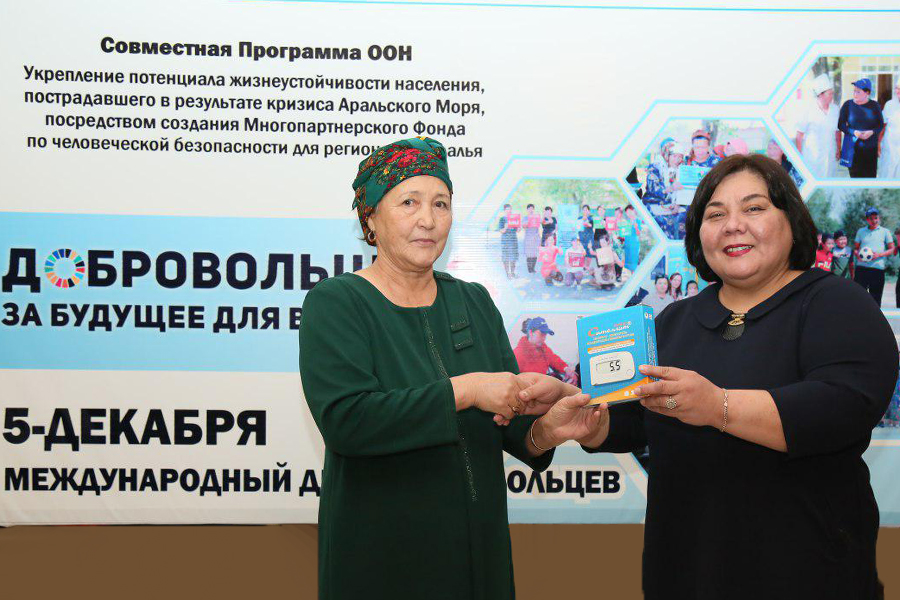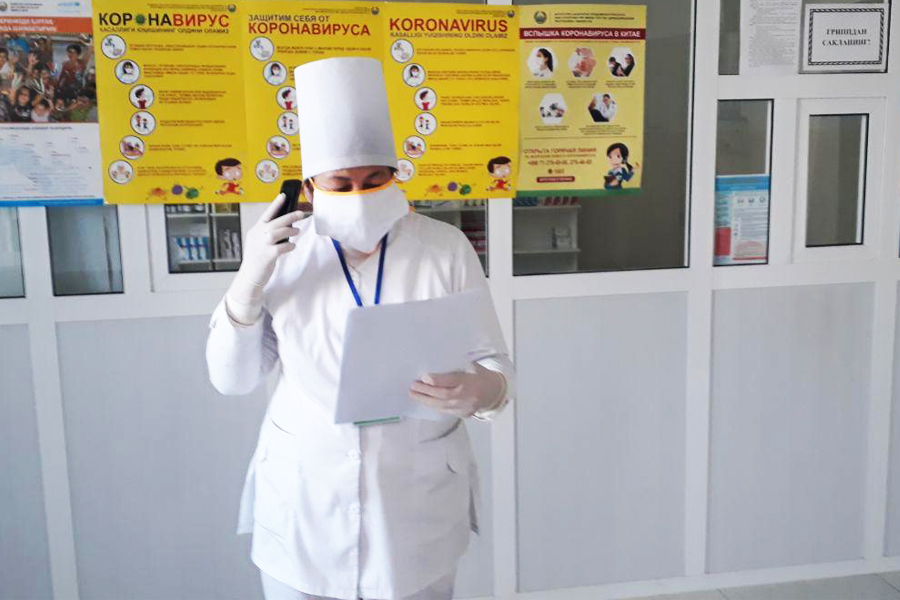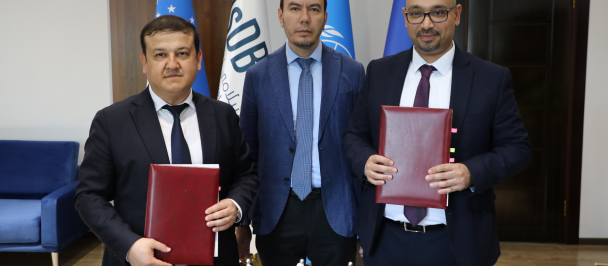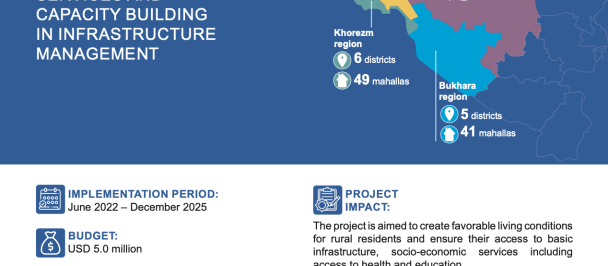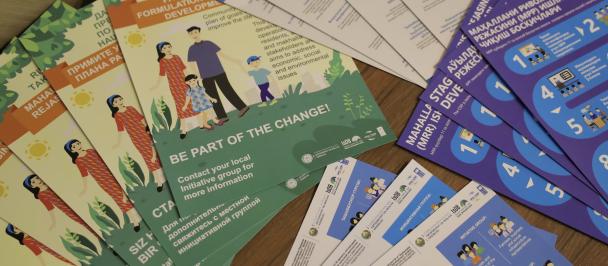Health community volunteer Halifa Zhaparova, who won best pensioner volunteer award, and Specialist on Health Issues, former UN Volunteer, Gulnara Japakova. ©UNDP, 2019”
Health volunteers of Karakalpakstan, Uzbekistan, trained by UN Volunteers through the UN Joint Programme on the Aral Sea region, are now part of the COVID-19 pandemic response. They use all feasible means to help people in remote communities stay healthy and informed.
In the face of the COVID-19 pandemic, 400 medical workers, teachers, specialists in community mobilization, youth and pensioners, all health volunteers, immediately came together to establish a new approach of help. They organized non-stop consultations for their fellow villagers, using materials from the Ministry of health of the Republic of Uzbekistan and the WHO. Though they cannot conduct live trainings because of the lockdown, they found a way to be available 24/7 via Telegram channel and calls.
“We regularly follow the news in official media, consult with representatives of the Ministry of health and the WHO, and share information with other community volunteers in remote zones”, – Gulnara Japakova, Specialist on health issues, former UN Volunteer.
In turn, these volunteers draw up lists of residents of their communities and call families daily to provide consultations, check the health status of each family member and, if necessary, refer them to the right specialist.
This collaboration evolved thanks to UN Joint Programme on the Aral Sea region when more than 2000 health volunteers were gathered and trained to support the communities of Karakalpakstan.
Help that grows
The people of Karakalpakstan were affected by ecological changes resulting from the disappearance of the Aral Sea, once the fourth largest lake in the world. The UN Joint Programme on the Aral Sea region, started in 2016, had the goal to improve the health of the people of this region.
At first, 60 volunteers from 12 communities were trained to visit their communities and spread information about the necessary measures to prevent tuberculosis and other diseases.
Later in 2017, when Gulnara Japakova joined a team as UN Volunteer to coordinate trainingson the prevention of lung, gastrointestinal, cardiovascular diseases, as well as maternal and child health, the number of volunteers expanded.
“We were able to train more than 2080 medical volunteers in 10 districts of Karakalpakstan. Now, when lung health is under extreme risk this knowledgeable people play essential role” –Gulnara Japakova said.
UN Volunteers developed training modules, educational and sanitation manuals, calendars, posters, leaflets, as well as all the necessary equipment and tools for convenient and safe work with the population.
Later, trained and equipped health volunteers themselves created a Telegram channel "Volunteers of Karakalpakstan", where they shared their experiences, results of meetings incommunities, exchanged challenges they faced and advocated how to prevent them in the future.
“Volunteering gave me a sense of belonging to the lives and destinies of people. With each training session, each meeting, I knew that I was bringing benefits to people, giving them vital knowledge”, – noted Gulnara Japakova, Specialist on health issues, former UN Volunteer.
Today, Gulnara is working closely with community health volunteers in a new role in the joint UNDP-UN population Fund program "Strengthening the resilience of local communities in the Aral sea region to environmental, economic, and public health vulnerabilities", funded by the government of Japan. This programme will advance the work of volunteers in the region by joining efforts of local volunteers and international expertise.
“I think the current situation in the world clearly demonstrates that volunteering in the field of public health should become the norm in the daily life of every community”, – Gulnara Japakova, Specialist on health issues, former UN Volunteer.
“And each of us should have an internal sense of volunteerism to support people in circumstance like with COVID-19”.
Kurbanbaeva Shukurjan, health volunteer from Navruz Village, Karakalpakstan, Uzbekistan, works via Telegram messenger and calls families in her community to explain measures to prevent the spread of coronavirus infection. UNDP, 2020”

 Locations
Locations